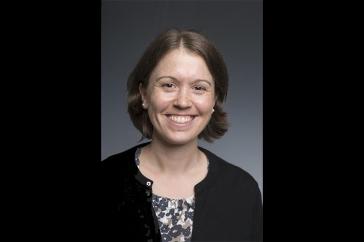
“I live my life according to my personal values. My choices will never bring me great wealth or power but I am happy to be living my vocation.”
Those are the words of Jolan Rivera, who has been teaching at the UNH Carsey School of Public Policy since the community development program began in 2011 and currently serves as its program director. After exploring options in chemistry and engineering, he graduated from the University of the Philippines College Baguio with a Bachelor of Arts in social sciences with a double major in economics and psychology, and joined their faculty to teach western economic theory.
Rivera first came to the United States to earn a microenterprise development certificate with the community economic development program at New Hampshire College (now Southern New Hampshire University). The support of his family enabled him to continue his studies and, holding a master’s degree and Ph.D. in community economic development, teach a variety of courses at SNHU.
In his consulting work, both independent and collaborative, Rivera has been deeply involved in training and research for government and nonprofit organizations on topics ranging from affordable housing, food cooperatives and community-based crime prevention to outcomes-based project design and strategic planning.
Moving to England for four years, Rivera became a specialist for World Vision UK, a humanitarian organization that partners with children, families and communities to overcome barriers to their well-being. He traveled to Ethiopia, Kenya, Honduras and Bolivia to use his expertise in the design, monitoring and evaluation of local efforts to promote the social, economic and cultural well-being of children, families and communities.
“The online learning platform democratizes education by offering access to a much broader base of student demographic. Access to distance education relieves geographic and schedule constraints, but it also promotes quality of life by allowing students and teachers the time and opportunity to focus on their academic goals.”
Professionals in community development grapple with contemporary issues like globalization, information technology, racial inequity and community engagement. Encompassing the complex political, social, economic and religious factors that underscore any community project plan challenges Rivera’s students to put theory into practice.
“Community development speaks to the heart of human experience. A complex web of political, economic, social and religious influences factor into any community partnership,” Rivera says. “To optimize local action for change, practitioners identify overlapping local needs and goals, leveraging these commonalities to craft successful outcomes.”
Grounded in the belief that true education begins with a two-way conversation, Rivera’s classroom style emphasizes a peer learning experience where students learn from each other’s expertise and work experience. As an advocate for the benefits of online learning, Rivera dreams of an education system that transcends the barriers of cost and high-speed internet access for all world citizens.
“The online learning platform democratizes education by offering access to a much broader base of student demographic,” Rivera says. “Access to distance education relieves geographic and schedule constraints, but it also promotes quality of life by allowing students and teachers the time and opportunity to focus on their academic goals.”
Familiar with Western economic philosophy and standards of success, Rivera acknowledges the common human necessity of generating personal income. As an experienced community developer, however, he ponders the question of the optimal approach for ensuring the well-being of the community. Referring to the well-known political concept of “enlightened self-interest,” Rivera considers a model where every individual enhances their own success by contributing to the larger community so that all may thrive.
“Work plays a significant role in the well-being of the individual. I believe that their work should actively support and promote their personal ethics,” he says.
A frequent international traveler, Rivera’s favorite vacations are in the United States, with its diversity of geography, climate and population. As an avid sports fan, however, Rivera confesses to difficulty deciding which international team to cheer for because he feels an affinity with so many countries he has visited. Although he grew up in a Filipino lifestyle, many of his family members live and work in this country so he easily settled into American society. With a wry smile, he quips that his biggest culture shock was the “enormous portion size” of restaurant meals.
Rivera looks forward to continuing his career in higher education, collaborating with the next generation of community developers to become critical thinkers and effective leaders. The cherished memory of a former student speaking as a peer during a meeting in Kenya symbolizes the ultimate reward for a teacher committed to a vocation in community development.
“Because I love what I do, the best time of my life will always be right now,” he says.
-
Written By:
Gwendolyn Goguelet | UNH Online | unh.online@dos5.net






















































